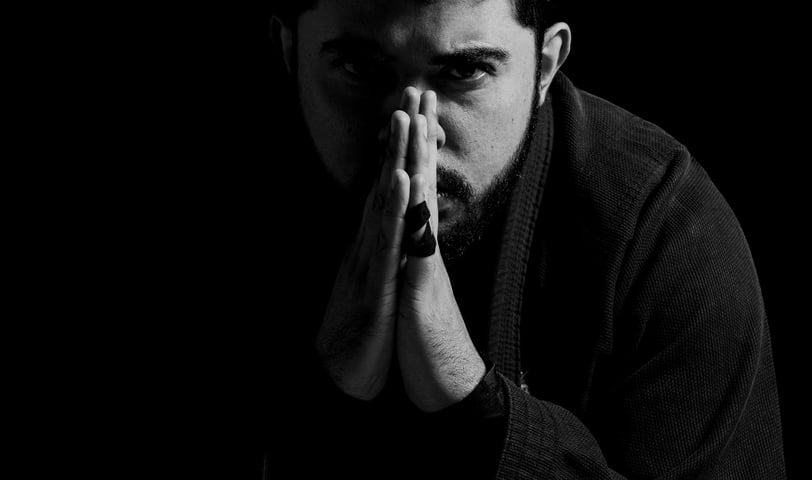Buddhist Philosophy and Sporting Success
Cultivating Inner Peace for Outer Performance
Graham
12/2/20243 min read


In the world of sports, success depends as much on the mind as on the body. Athletes are constantly seeking ways to strengthen their focus, resilience, and composure under pressure.
Buddhist philosophy, with its emphasis on mindfulness, impermanence, and balance, offers powerful tools for achieving peak mental performance. At Insio, we champion the inside-out approach—helping athletes develop inner strength to achieve external excellence. Buddhist principles align seamlessly with this philosophy, encouraging athletes to nurture mental clarity and emotional balance.
Let’s explore how Buddhist teachings can enhance sporting performance and inspire athletes to unlock their full potential.
Understanding Buddhist Philosophy
Buddhism is a philosophy centered on mindfulness, self-awareness, and detachment from outcomes. The Four Noble Truths and the Eightfold Path offer guidance on managing suffering, finding balance, and living in harmony with the present moment.
For athletes, these teachings can lead to improved focus, reduced anxiety, and a deeper connection to their performance.
One of Buddhism’s core teachings is impermanence, the understanding that all things—including victories and defeats—are transient. This perspective encourages athletes to stay grounded, embrace change, and avoid being consumed by highs or lows.
In sports, where unpredictability is the norm, Buddhist philosophy offers a steady foundation.
Buddhist Principles in Action: Sporting Success Stories
Novak Djokovic: The Power of Mindfulness
World-class tennis player Novak Djokovic credits his success to practices rooted in Buddhism, including meditation and mindfulness. Djokovic has spoken about the importance of being present during matches:
“I try to be in the moment and focus only on the next point.”
This mindset, derived from Buddhist teachings, helps him recover from setbacks and maintain composure in high-pressure moments. By focusing on the here and now, Djokovic maximizes his performance, one point at a time.
Kobe Bryant: The Zen Mindset
The late basketball legend Kobe Bryant embraced mindfulness and meditation to sharpen his mental game. Inspired by Zen Buddhism, Bryant practiced visualization techniques and cultivated a state of “flow” to enhance his focus during games. In interviews, he described meditation as a way to quiet the mind and prepare for intense competition.
“The game slows down when your mind is clear.”
Bryant’s ability to find calm amid the chaos of the NBA made him one of the most iconic players in history.
The Psychological Benefits of Buddhist Philosophy in Sports
Buddhist teachings offer profound psychological advantages for athletes, particularly in high-stakes environments where mental clarity and emotional balance are crucial.
1. Enhanced Focus Through Mindfulness
Mindfulness, a cornerstone of Buddhism, trains athletes to stay fully present. By focusing on the current moment, they can block out distractions, whether it’s a roaring crowd or personal expectations.
2. Resilience Through Impermanence
The Buddhist principle of impermanence teaches that victories and defeats are temporary. This perspective helps athletes bounce back from losses and remain humble after wins.
3. Letting Go of Ego and Attachment
Buddhism emphasises detachment from ego and outcomes. Athletes who adopt this mindset can perform freely without fear of failure.
4. Cultivating Emotional Balance
Buddhist practices such as meditation and loving-kindness (metta) promote emotional stability. Athletes who cultivate this balance are less likely to be derailed by frustration or anger.
Practical Buddhist Techniques for Athletes
To integrate Buddhist philosophy into your training and performance, try these practices:
Mindful Breathing
Before competitions, take a few minutes to focus on your breath. This simple practice calms the mind and anchors you in the present.Meditation for Mental Clarity
Set aside 10–15 minutes daily for meditation. Visualise yourself performing with calmness and focus, letting go of any fears or distractions. If you’re new to mediation, there are loads of great apps to try like Calm, Headspace and Insight Timer (which is the one I use)Detachment Exercise
Reflect on the idea that outcomes are temporary. Remind yourself that your effort and mindset matter more than the result.Gratitude and Compassion
Incorporate gratitude practices to foster a positive mindset. Express kindness toward yourself and others, reducing internal tension and external competition anxiety.
Living Inside Out: Buddhist Philosophy Meets Insio
At Insio, we believe in the transformative power of aligning inner strength with outer performance. Buddhist principles, with their focus on mindfulness and resilience, embody this philosophy perfectly. By fostering mental clarity, emotional balance, and detachment, athletes can navigate the challenges of competition with grace and confidence. As the Buddha said:
“Your worst enemy cannot harm you as much as your own unguarded thoughts.”
By cultivating a mindful and resilient mindset, you can silence self-doubt and thrive under pressure.
Final Thoughts: Flourish From Within
Buddhist philosophy offers a timeless blueprint for mental performance in sport. Through mindfulness, impermanence, and emotional balance, athletes can stay present, overcome challenges, and find joy in the journey. At Insio, we’re here to guide you on this path, helping you live and perform from the inside out.
Embrace the wisdom of Buddhist teachings. Strengthen your mind. Find your best.
That’s the Insio way.
